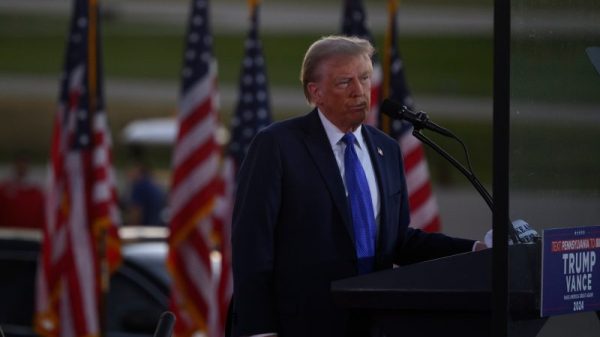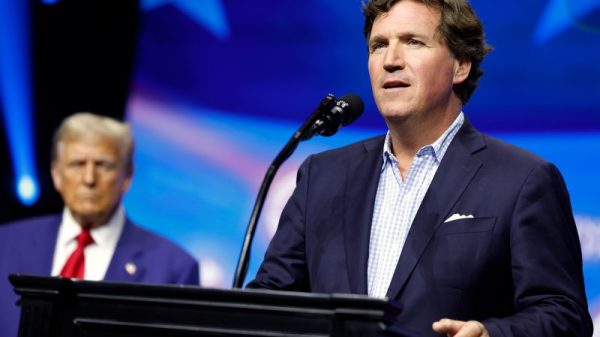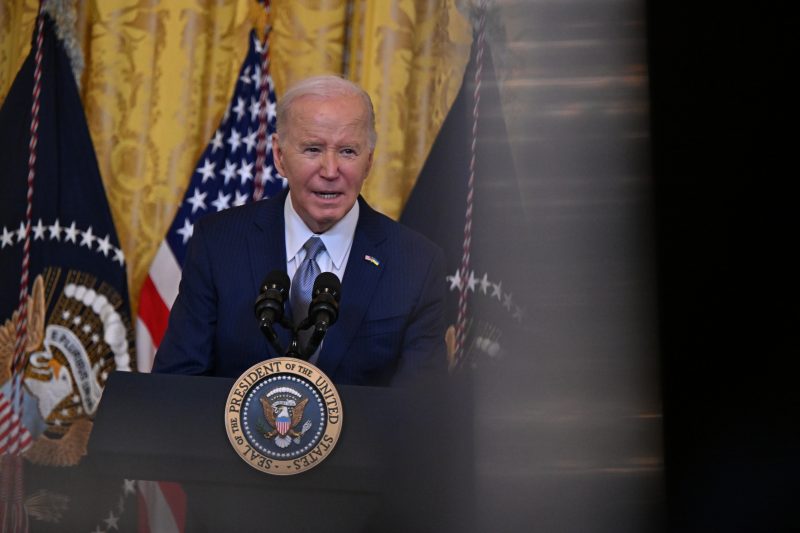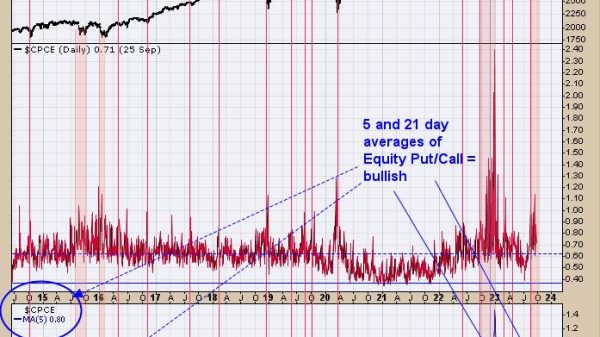With Ukraine running low on munitions and a partial government shutdown set to strike in days, President Biden summoned congressional leaders to the White House on Tuesday in an attempt to break through a deadlocked spending debate on Capitol Hill.
If a portion of federal finances lapse just past midnight on Saturday, vital services at the Department of Transportation would go offline. Food stamp programs could quickly run low on funding. Housing assistance for millions of families would fall into jeopardy. And another larger government shutdown cliff awaits just a week later, when funds for the Defense and State departments will also expire, unless Congress acts.
In Ukraine, the situation is far more dire, lawmakers and national security officials say. Commanders there have already begun ordering fighters to ration munitions in the nation’s fight against Russia’s two-year-old invasion. Without U.S. defense assistance, experts say, Russia will probably be able to turn the tide of the war, which has been mired in a stalemate for months. Russian President Vladimir Putin’s forces already captured the former Ukrainian stronghold of Avdiivka earlier this month, a battle in which a lack of U.S.-provided arms proved decisive, officials say.
“In less than a week, the federal government will begin to shut down unless both sides — both sides — work together to extend funding,” Senate Majority Leader Charles E. Schumer (D-N.Y.) said on the Senate floor Monday. “Meanwhile, the moral obligation for Congress to help the people of Ukraine and fortify our own national security grows heavier with each passing day.”
The twin spending fights have ground Congress to a standstill in recent weeks. House and Senate budget negotiators are struggling to cinch a spending deal to fund the departments of Transportation, Housing and Urban Development, Agriculture, and Energy — the agencies whose funding is set to expire this weekend.
Schumer and House Speaker Mike Johnson (R-La.) backed off a plan Sunday to release legislative text of that deal amid continued policy disputes on issues ranging from anti-hunger assistance to access to firearms.
The two leaders have already agreed broadly on how much the government should spend on so-called discretionary programs this fiscal year — $1.7 trillion — and on roughly how to allocate it between Cabinet departments, but the final details are proving tougher to nail down.
In the latest round of talks, Senate Democrats have requested roughly an additional $1 billion for the federal food assistance program for women, infants and children, known as WIC. The program has seen an enrollment surge since the start of 2023, drawing down federal funds faster than anticipated, experts say. Biden requested the additional $1 billion to plug that gap.
In exchange for that funding, House Republicans — led by chief agriculture bill negotiator Rep. Andy Harris (R-Md.), an anesthesiologist — want changes to the Supplemental Nutrition Assistance Program (SNAP), formerly known as food stamps. The proposal would launch a pilot program that would restrict participants’ purchases to “nutrient dense” items, according to a person familiar with the talks who spoke on the condition of anonymity to discuss the fragile negotiations.
“It’s no secret Dr. Harris would like to see the Supplemental Nutrition Assistance Program returned to what it was originally authorized in Congress to do,” a spokesperson for Harris said in a statement, “which is to ‘safeguard the health and well-being of the Nation’s population by raising levels of nutrition among low-income households.’”
Such a policy is anathema to Democrats and anti-hunger activists.
“People have different nutrient needs. We aren’t all the same. People know for themselves what kind of food is best for their families,” said Allison Johnson, campaign director of advocacy group ParentsTogether Action. “Trying to micromanage what families buy is going to backfire.”
Some Democrats are also fighting a policy provision that was included in spending bills that passed both chambers of Congress that would prohibit the Veterans Affairs Department from limiting veterans’ rights to own or purchase firearms if they also need help managing their federal benefits.
“I still think it’s a terrible idea and will get a lot of veterans killed,” Sen. Chris Murphy (D-Conn.) told The Washington Post on Monday.
An agreement to fund the rest of the federal government — roughly 80 percent of discretionary spending — is still a ways off, negotiators say. The deadline for the larger tranche of the government is a week later, and a shutdown would begin after midnight on March 9.
“Shutting down the government is harmful to the country and it never produces positive outcomes on either policy or politics,” Senate Minority Leader Mitch McConnell (R-Ky.) said on the Senate floor Monday. “What’s more, a shutdown this week is entirely avoidable. The Senate passed full-year appropriations for each of these important areas four months ago and our House colleagues have produced full-year legislation of their own. We have the means and just enough time this week to avoid a shutdown and make serious headway on annual appropriations. But as always, the task at hand will require that everyone rows in the same direction toward clean appropriations and away from poison pills.”
The Senate in early February reached a bipartisan agreement to pair $60 billion of funding for Ukraine with broad new immigration restrictions at the U.S.-Mexico border. Republicans in the upper chamber, who broadly support Ukraine funding, unlike their House colleagues, demanded that arrangement before greenlighting the Ukraine assistance. But former president Donald Trump opposed the deal, and Senate Republicans flipped and followed suit — casting the future of American support for Ukraine in grave doubt. In the House, Johnson declared the Senate bill a non-starter, too.
“What the president wants to see is we want to make sure that the national security interests of the American people get put first, it is not used as a political football. We want to make sure that gets done,” White House press secretary Karine Jean-Pierre told reporters Monday. “And we also want to see that the government does not get shut down. It is a basic, basic priority or duty of Congress to keep the government open.”





























